Alexander III
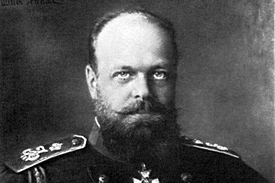
Born: St. Petersburg, 26 February (10 March) 1845
Died: Livadiya, 20 October (1 November) 1894
Reigned: 1881-1894
Grand Duke Alexander Alexandrovich (the future Emperor Alexander III) was the second son of Alexander II and the Empress Maria Alexandrovna. His older brother, Nicholas, was the heir apparent, and Alexander, in the family tradition, was groomed for a military career. However, during a trip to Europe, Nicholas unexpectedly fell ill with meningitis and died in Nice, and Alexander, to his own surprise, became heir to the throne. At the age of twenty, he had to return to the schoolbooks and listen to lectures on history, economics and law, which were necessary for his new status as heir apparent. At this time, the young man already spoke French, German, and English (although he preferred to always speak Russian in society), and he could also play brass instruments - the trumpet and the trombone. Contemporaries noted his sturdy health, athletic build and exceptional modesty in everyday life.
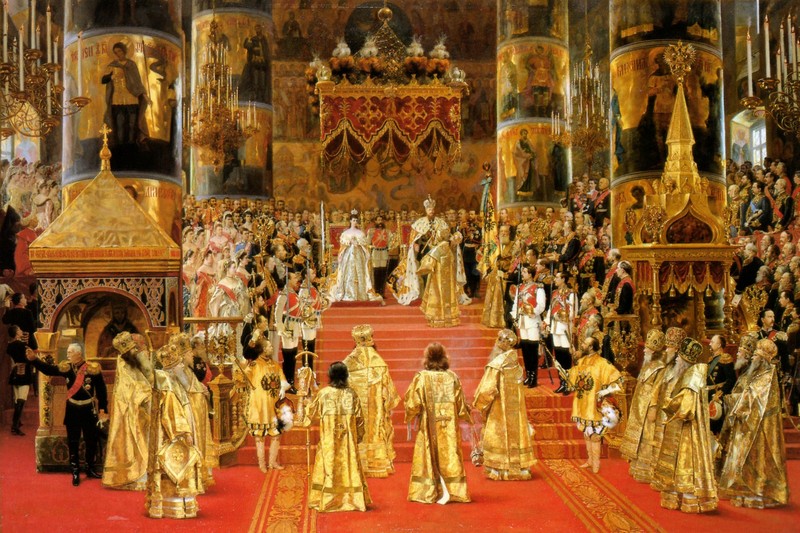
In 1866 Alexander married the daughter of King Christian IX of Denmark, Dagmar (Marie Sophie Frederikke Dagmar), who had been his late brother's fiancee. The marriage resulted in six children, including the heir to the throne, the future Emperor Nicholas II.
As heir apparent, Alexander participated in meetings of the State Council and collaborated with various committees as well as continuing his military career, rising eventually to the rank of General of Infantry. By the time of the Russian-Turkish War of 1877-1878, Alexander was in the theater of operations and headed a large force known as the Eastern Detachment that was assigned the task of capturing the Ruschuk fortress on the banks of the Danube.
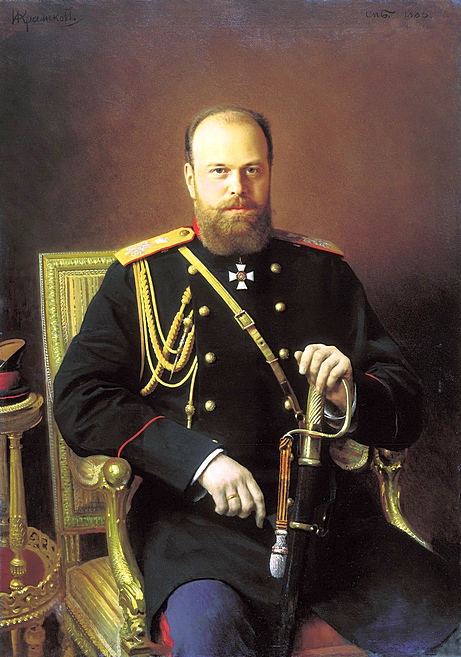
However, according to contemporaries, having seen the horrors of battle first hand, Alexander developed a loathing for war. Indeed, during his reign, Russia did not become entangled in any wars and the Tsar strove to maintain peace in Europe, which earned him the moniker of "Peacemaker". Alexander was an avid collector of art, and in this matter he was only rivaled by Catherine the Great. In the Gatchina Palace, where the Alexander chose to live, a rich collection of art was amassed, a large portion of which later entered into the Hermitage's collection.
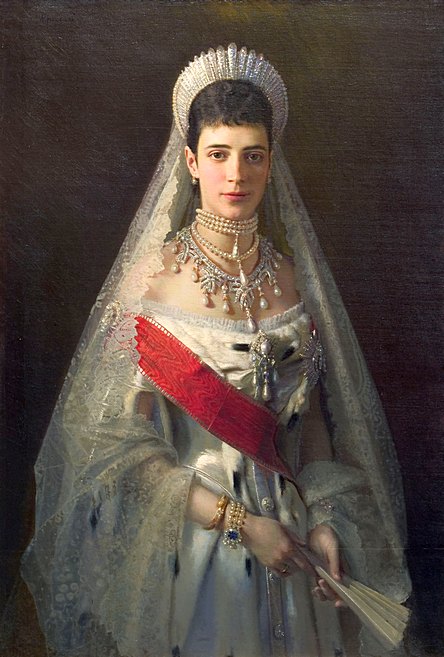
Alexander ascended to the Russian throne at a very dark hour: in 1881, after his father, Alexander II, had been assassinated by terrorists. Although he promised at the beginning of his reign to continue the work of his father, he ended up following a more conservative course under the influence of his tutor and personal advisor, Konstantin Petrovich Pobedonostsev. In fact, it turned out that the new Emperor did not share the views of his deceased father and was glad to negate many of the latter's liberal reforms. Immediately after ascending the throne, Alexander promulgated a manifesto entitled "On the Inviolability of Autocracy." His father's liberal ministers resigned, and Alexander established a government composed of people with a more conservative mindset.
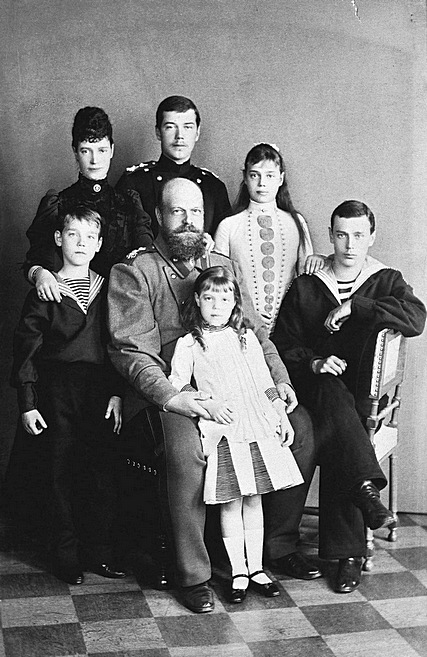
Censorship was increased, the autonomy of universities restricted, the role of landowners in rural local self-government (the zemstvo) strengthened, and access to education for the lower classes limited. At the same time, the country experienced an economic upturn: preparations were made for a monetary reform and the introduction of the gold-backed rouble, a tax reform was introduced, customs regulations adopted, and the introduction of a government monopoly on the wine trade increased tax revenues. Construction began on the Trans-Siberian Railway. Nonetheless, in 1892 and 1893, many agricultural areas across the country were hit with famine.
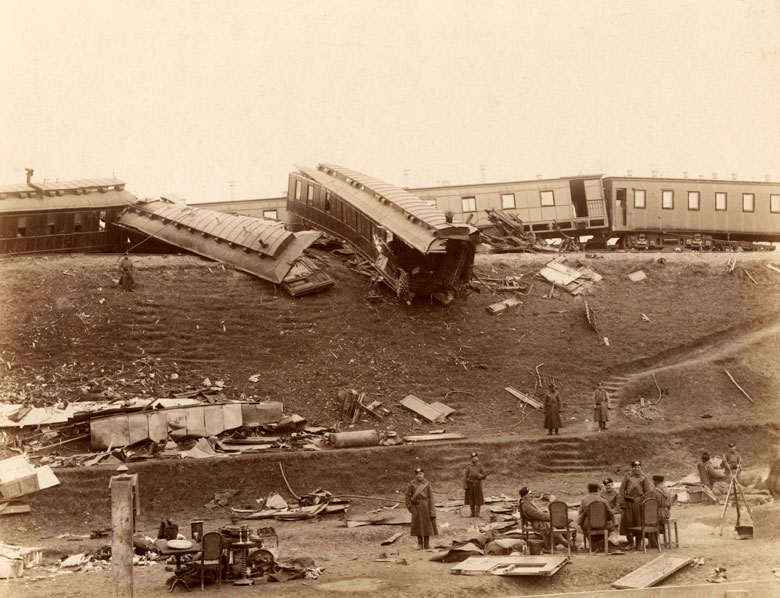
In the area of foreign policy, Alexander's efforts resulted in an unprecedented respite of thirteen years of peace. The Tsar attempted to act as an arbiter in European conflicts and to ensure peaceful resolutions. Conflicts with Turkey and Afghanistan were resolved without resorting to arms. At the same time, Russia gradually annexed the territory of Turkmenistan and increased its presence in the Far East, where Japan's active policies were causing the country great concern.
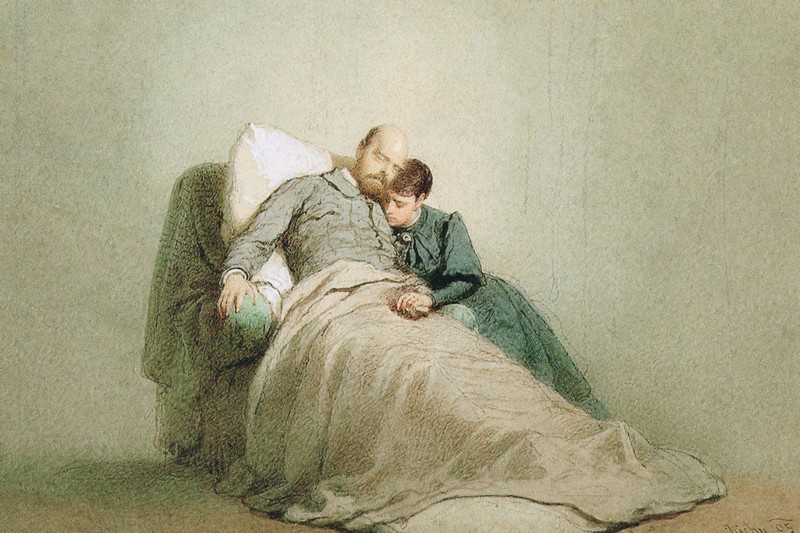
Serious illness fell upon the robust Alexander entirely unexpectedly. He came down with nephritis (kidney disease), suffered from headaches, lost his appetite and lost weight. He died in the arms of his wife in the Black Sea resort of Livadia where he had gone in the hope that there his health might improve. The oath of allegiance to the throne and to the autocracy was made by his eldest son, the last Russian Emperor, Nicholas II.

